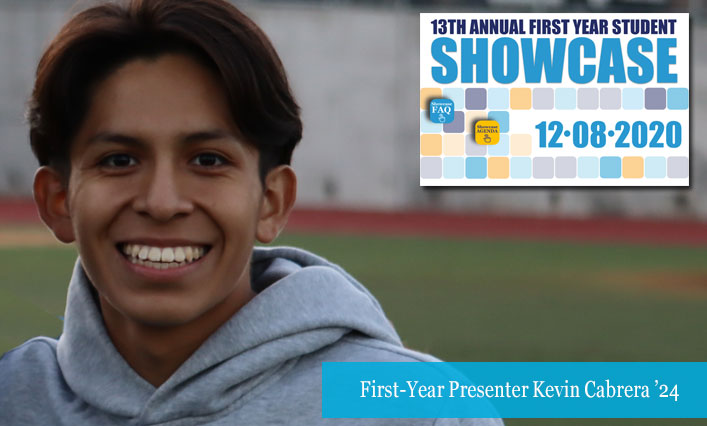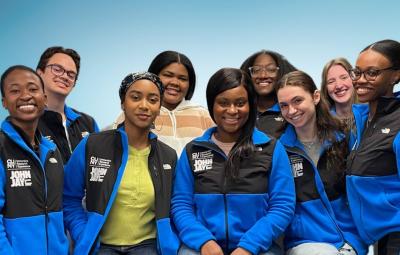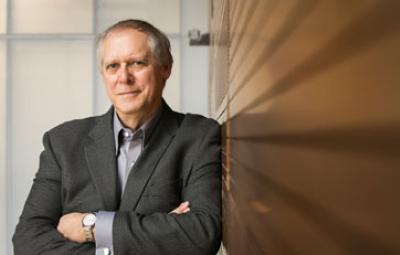
Every fall semester the John Jay community looks forward to seeing first-year students present their semester-long research projects at our annual First-Year Student Showcase. The variety of topics tends to be wide, the methodology for researching the subjects can be intriguing, and the faculty and staff mentorship for our first-year students is always inspiring. Not being able to gather on campus would seem to be a stumbling block for holding the 13th Annual First-Year Student Showcase—as we’d normally peruse hundreds of poster board presentations in the halls of John Jay—but that didn’t stop our students, who were guided by the incomparable Nancy Yang, Associate Director of First Year Programs, who managed our first-ever virtual First-Year Student Showcase.
“While the showcase looks different from years past, this showcase is probably going to be the one that I never forget,” said Yang during the virtual event. “It’s the one where first-year students started their college experience in the middle of a pandemic and found ways to collaborate with each other without ever being physically together. It’s the one where faculty showed their love and support through a screen.” After watching the first-year student presenters mention what they researched over the semester, many viewers wanted a more in-depth look at their projects. That’s where this article series comes in. We connected with some of the presenters and dived a little deeper into their theories, their methodologies, and their findings.
Kevin Cabrera ’24, a Forensic Psychology major from Queens, New York, along with his team and under the guidance of Associate Professor Helen Kapstein, Ph.D, and SASP Peer Success Coach Fiona Kim, examined and compared how the concept of distributive justice was used in the novel Great Expectations and a modern-day adaptation of the Dickens classic.
“Distributive justice is the concept that everyone in society has the same rights and equal opportunities to succeed regardless of their position in society.” —Kevin Cabrera
What was your original research hypothesis?
Our original research hypothesis for “Distributive Justice in Great Expectations” was that every character in the novel Great Expectations got what they deserved based on the idea of distributive justice in the Victorian age. The group assignment was to compare and contrast the original novel and a modern adaptation of the novel based on how they addressed the issue of justice—we chose the South Park episode titled "Pip" as the modern adaptation. While we looked through different themes of justice, distributive justice caught our eye. Distributive justice is the concept that everyone in society has the same rights and equal opportunities to succeed regardless of their position in society.
What specific methodology did you use to conduct your research?
When we began our research, we all had a different perspective of what distributive justice meant, and when we tried bringing it together, we saw many gaps and unclear ideas. So, we got together to get a better understanding of each other’s perspectives, which allowed us to create our hypothesis. Using the John Jay library, we found definitions and examples of distributive justice that allowed us to obtain a new and greater perspective of the book and its characters, which allowed us to bring our theme together.
“Great Expectations exposed many political and social truths that we can still see today.” —Kevin Cabrera
What surprised you the most about this experience?
What surprised me the most is how a lot of events that occurred in the past repeat themselves. Societies develop to match the time period, but many of the injustices remain the same. Great Expectations exposed many political and social truths that we can still see today.
“Before this research experience I had never read a book by Charles Dickens, and now, I’m so glad I did.” —Kevin Cabrera
Knowing what you know now, what would you say to another student about to embark on a research project?
I would stress the importance of teamwork because communication allows you to reach your goal. When researching, there can be a lot of information to take in, so discussions with your group are so important. Those conversations allow you to grasp the central main ideas. Also, when choosing a topic, don’t choose something you’re familiar with, instead choose an unfamiliar topic. It will allow you to explore hidden themes and step out of your comfort zone. For example, before this research experience I had never read a book by Charles Dickens, and now, I’m so glad I did.



